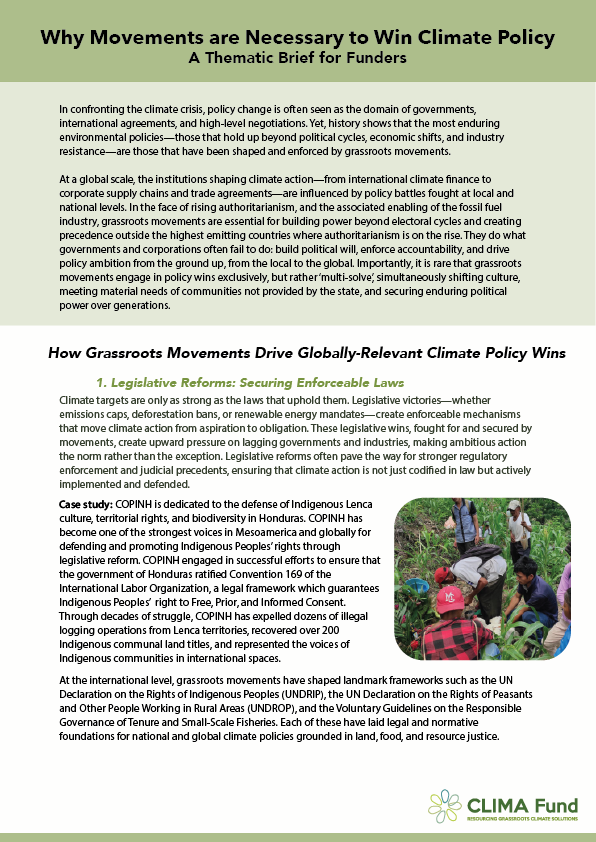
In confronting the climate crisis, policy change is often seen as the domain of governments, international agreements, and high-level negotiations. Yet, history shows that the most enduring environmental policies—those that hold up beyond political cycles, economic shifts, and industry resistance—are those that have been shaped and enforced by grassroots movements. Grassroots movements do what governments and corporations often fail to do: build political will, enforce accountability, and drive policy ambition from the ground up, from the local to the global.
For funders seeking systemic, large-scale climate impact, supporting grassroots climate justice movements is not just a moral imperative—it is a strategic necessity. To sustain and expand these wins, funders must provide unrestricted, long-term support that enables movements to engage in litigation, advocacy, and sustained political organizing across multiple fronts.
To learn how grassroots movements are driving globally-relevant policy wins, read Why Movements are Necessary to Win Climate Policy now.